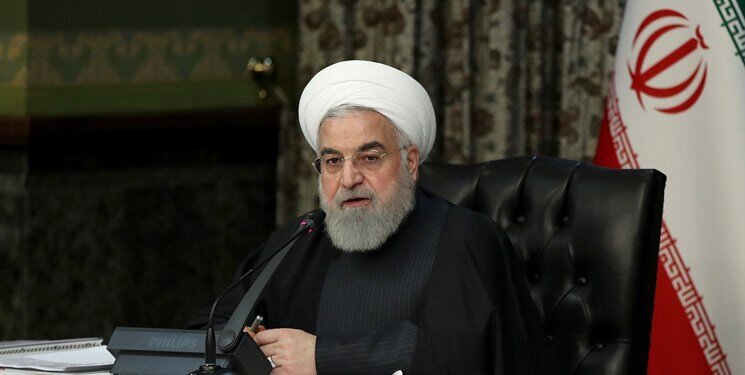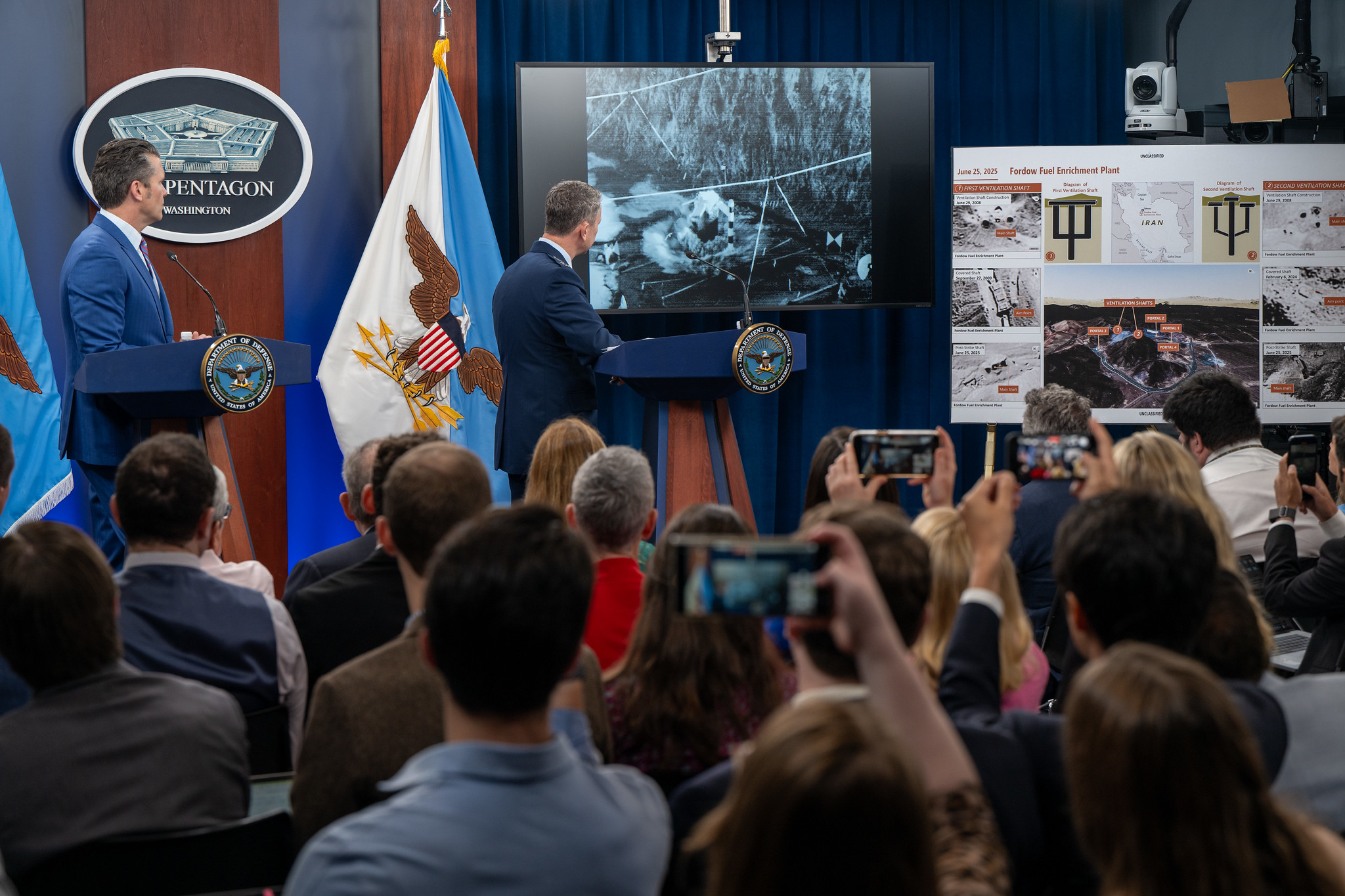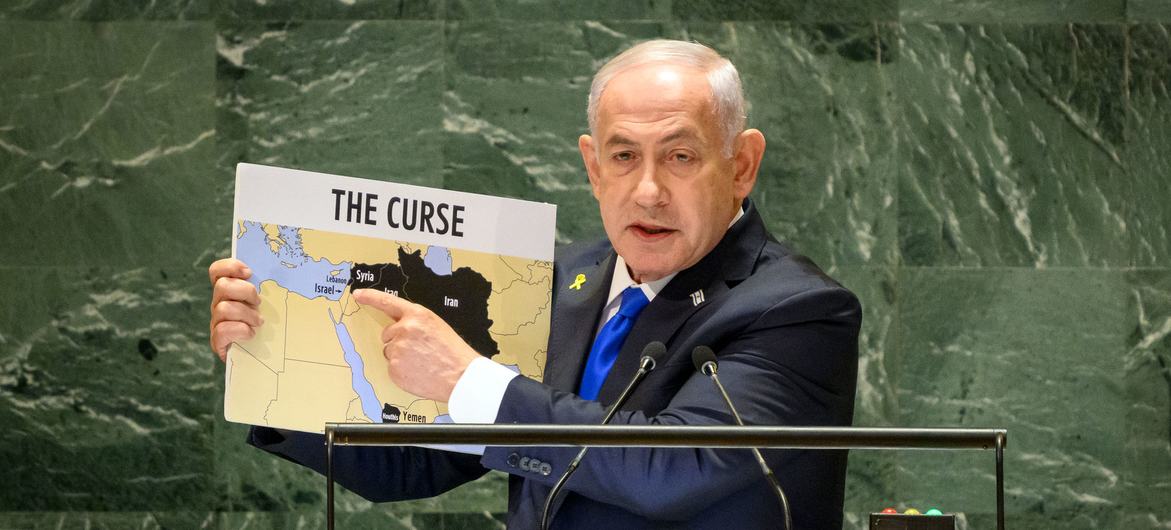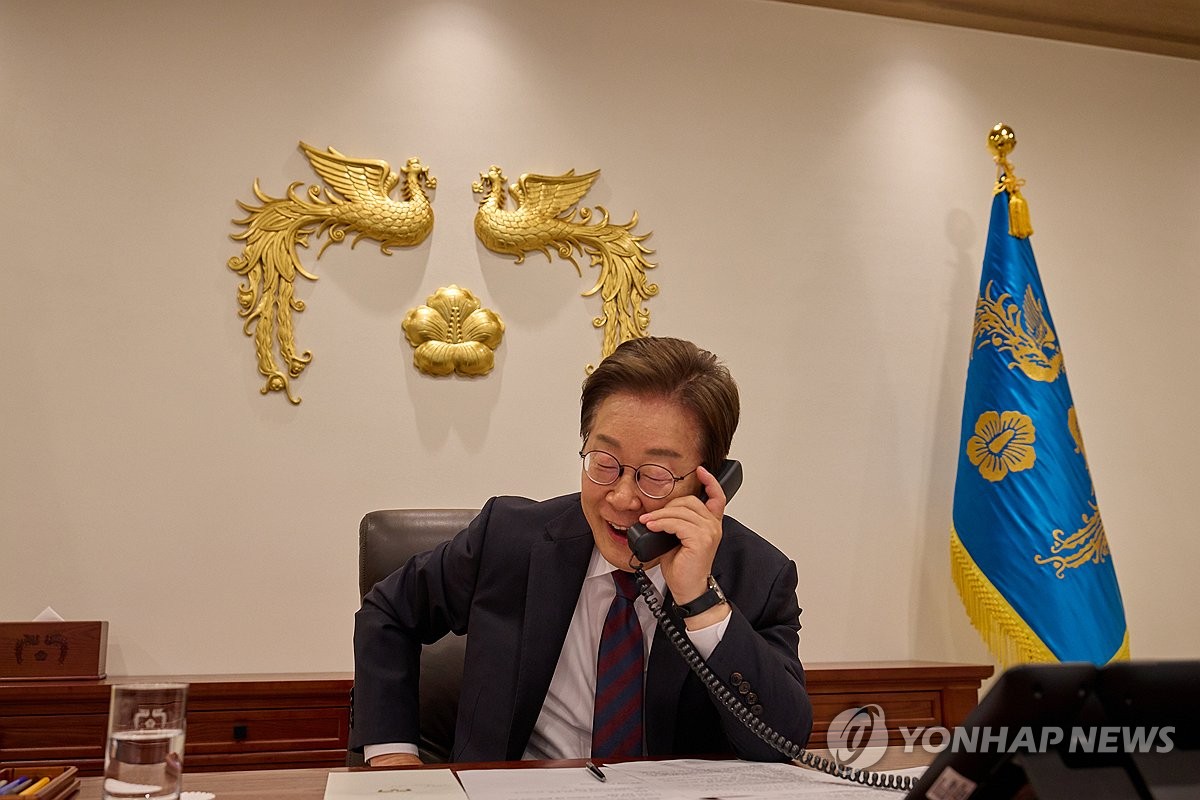TEHRAN, Iran. March 16th, 2020. PICTURED: Iranian President Hassan Rouhani in a press conference addressing the upcoming holidays and crisis of coronavirus spread.
TEHRAN, Iran. June 24th, 2020. Iranian President Hassan Rouhani has said that all of Washington’s wishes of Iranian nuclear arms control could come true if she “apologies and compensates Tehran for its withdrawal from the 2015 deal”.
After withdrawing from the 2015 Joint Comprehensive Plan of Action (JCPOA) which limited Iranian uranium enrichment capacity in exchange for sanctions relief from the U.S. and economic support and guarantees from Europe, President Trump immediately harshened trade sanctions on oil and most everything else coming out of Perisa, with new announcements of sanctions arriving frequently as tensions between the two countries have increased since the 2018 withdrawal.
Flashpoints over the last year included cases of oil tanker sabotage in the Strait of Hormuz, the shooting down of a U.S. unmanned aerial vehicle that was allegedly flying over Iranian airspace, accusations of Iranian-support for Houthi fighters in Yemen who famously attacked Saudi Arabian oil fields in the autumn of last year, and Iranian shipments of oil to Venezuela, another country and target of strict Trump Admin. sanctions.
Trump’s continual stance has been that Tehran must not have access to nuclear weapons, but that the JCPOA was a “bad deal” and that Tehran should abandon her regional proxy wars and sign a new deal.
Rouhani and the regime in Tehran meanwhile suggest that the JCPOA was perfectly fine, and that as a show of faith, they have continued to operate their nuclear energy program within the limits of the JCPOA, even though they legally have no obligation to do so after the United States withdrew.
Making a new deal
Any difference between former president Obama’s JCPOA and an as-yet unachieved agreement under Trump would likely be academic, involving more promises from both sides that the history of the JCPOA has already demonstrated have little chance of being fulfilled.
All sides have failed the adhere to the details of the JCPOA. Washington did not allow the oil economy of Iran to recover, Europe failed to prevent U.S. sanctions from crippling Iran’s economy, and it’s likely Tehran continued to fund the Houthis of Yemen.
If Trump did “apologize” they would also have to show a bit of sincerity, perhaps by lifting some of the crippling economic sanctions that have increased non-stop, even throughout the COVID-19 pandemic where Iran became the regional epicenter, like Tehran has asked.
Bonnie Kristian at Defense Priorities, writing for Business Insider details how his policy of maximum economic disparagement has failed to force through his plan for a new deal.
“The Trump administration’s policy of needless antagonism toward Iran — beginning with President Donald Trump’s decision to withdraw the US from the Iran nuclear deal and continuing with his failed policy of “maximum pressure” in the years since — deserves credit for fostering Iranian misbehavior, not its cessation,” writes Kristian.
Trump’s policy of open-palm and closed-fist is not lost on the Iranians, who have only done everything they can to prove they will not succumb to bullying, and have sought every effort to survive as their economy chokes.
“But we know these calls for talks with Tehran are just words and lies,” Rouhani said in a tweet, pivoting afterwards to address Europe, who were working to finish a payment system to circumnavigate American sanctions as a part of the JCPOA. “The Europeans have failed to fulfil their promises. They should carry out their obligations,” Rouhani said.
German Foreign Minister Heiko Maas said in early May last year that the payment system, known as INSTEX, (Instrument in Support of Trade Exchanges) would soon be ready to go after months of work following an Iranian ultimatum that it would begin enriching uranium again if Europe didn’t intervene to stop rampant U.S. sanctioning.
“This is an instrument of a new kind so it’s not straightforward to operationalise it,” he said at the time, pointing to the complexity of trying to install a totally new payment system.
“But all the formal requirements are in place now, and so I’m assuming we’ll be ready to use it in the foreseeable future,” he added.
Whatever complexities were found with INSTEX either halted it in its tracks, or something else happened, it’s clear Europe failed to fulfill its obligations.
Continue exploring this topic — The Effects of Sanctions on Venezuela and Iran During COVID-19



